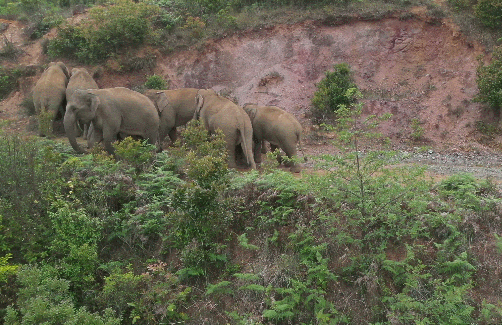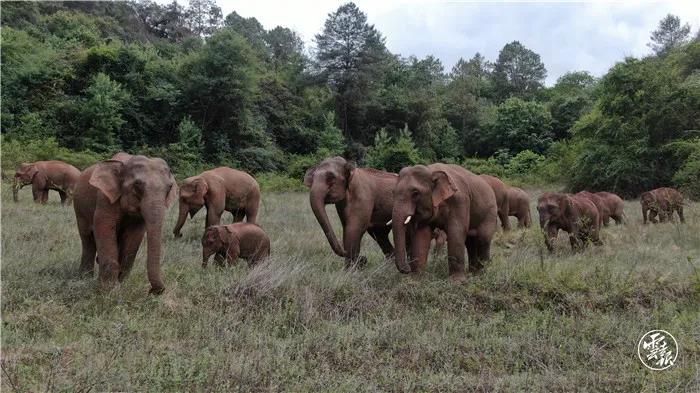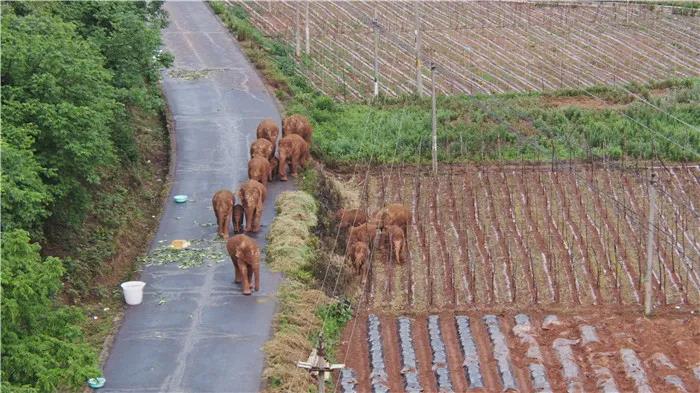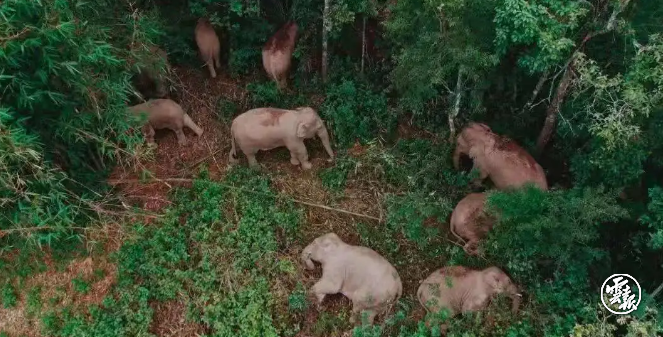Elephant herd shuns downtown Kunming
Fifteen wild Asian elephants that left their habitat in Xishuangbanna, in Southwest China's Yunnan province, changed direction from north to northwest and then to south on Sunday, steering clear of the provincial capital Kunming's downtown without causing disturbances.

As of Sunday morning, the herd, including two baby elephants, had moved to Xiyang township in Kunming's Jinning district. They are all healthy and safe, the provincial Forestry Department said.
The elephants left Xishuangbanna National Nature Reserve, in the Xishuangbanna Dai autonomous prefecture, last year and traveled nearly 500 kilometers northward-an abnormal route because the climate conditions in that part of the province are not preferred by the former rainforest inhabitants.
The reason for their migration is not known, but experts think that either a food shortage or the "guide elephant" misleading the herd could be at fault.
Along the herd's path, the forestry department and the provincial and local governments have dispatched staff members to conduct round-the-clock surveillance and have arranged for trucks and fire engines to block off the main entrances to residential areas.


On Sunday, more than 500 staff members, including forestry police officers, were dispatched, and 64 trucks, 13 drones and 52 emergency use cars were deployed to monitor and block the herd's passage.
Local residents and people living in nearby areas have been receiving daily alerts. So far, no conflict has been reported.
The herd's march has triggered widespread public interest, and many videos recorded by local people have received thousands of "likes" on social media.
The most popular of these are two videos recorded on Friday in Jinning. In one, an elephant turns on a water tap with its trunk and gives the herd members water. In another, two baby elephants almost fall into a small ditch but are saved by the adults.
"Asian elephants have a strong sense of society and value the family highly. If any member-especially the young family members-needs help, others will try their best to provide it at any cost," Chen Mingyong, a science professor at Yunnan University, said on Sunday.


According to the provincial Forestry Department, the herd has adjusted its direction since Friday, as experts tried to entice them to go farther from the downtown areas with delicious foods, such as pineapples.
Yunnan is the sole wild Asian elephant habitat in China. Before the 1970s, the species was threatened by a number of factors, including a surge in the human population, reduced forestry areas and illegal hunting. Their numbers dropped significantly.
However, through determined protection efforts in recent decades, China's Asian elephant population has risen from 170 in the 1970s to 300.
"Its growing population requires a larger habitat and more food. The well-protected forest resulted in the decrease of some small plants-the favorite food of wild elephants," said Guo Xianming, director of the research institute at Xishuangbanna National Nature Reserve.


Photos: Yunnan Daily app